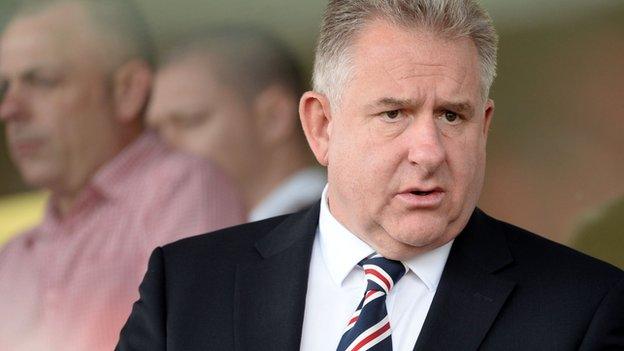Rangers: Share offer to raise £4m amid concern over paying creditors
- Published
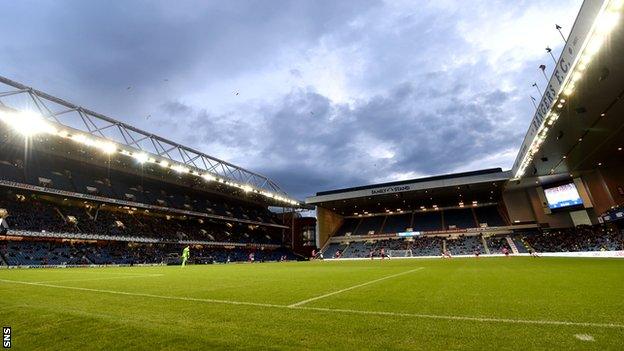
Rangers
Rangers have confirmed plans to try to raise £4m via an "open offer" with new shares being made available for purchase to existing shareholders.
The club told the Stock Exchange, external they hope the funding will help "re-build and re-establish Rangers as a stable, sustainable and successful business".
A previous attempt to raise £10m from city investors proved unsuccessful.
Rangers say even more funding will need to be raised "in order to meet working capital requirements".
Overall, the club is looking to raise between £20m and £30m over the next three years and will consider "lines of credit, other forms of short-term finance or...a component of a further equity raise".
"Failure to secure such funding would be damaging to the business and may impair the value of the ordinary shares," the club explained.
"The open offer is not underwritten.
"If the aggregate level of subscription is less than 15,000,000 new ordinary shares the open offer will not proceed and subscription monies will be returned to applicants.
Rangers' April review | |
|---|---|
Business needs to raise up to £30m over three years | New share issue planned for autumn 2014 |
Cuts of £2m made with other savings likely | Plan to make the business sustainable by season 2015-16 |
Aim to make team Scottish Premiership winners by 2017 | |
"Should this occur, the company will be unable to pay its creditors as they fall due and the future of the company will be uncertain; the directors will immediately have to seek emergency financing which may or may not be available.
"If a qualifying shareholder does not take up any of his or her open offer entitlement, his or her proportionate ownership and voting rights in the company will be diluted by 23.2 per cent by the issue of the new ordinary shares."
As part of his 120-day review published in April, chief executive Graham Wallace said he would look at a new rights issue later in the year "when the climate will be better for us".
Prior to the announcement of the new scaled down share issue, potential city investors were being asked to buy in at around 25p per share but Rangers failed to get the uptake they were looking for.

Wallace (right) announced plans for a share issue in April while Easdale (left) has loaned the club money
The Scottish Championship club now say that "the issue price of 20 pence per new ordinary share represents a discount of approximately 21.6 per cent to the closing middle market price of 25.5 pence for each existing ordinary share in the company on 28 August 2014".
The club's finances have been under the spotlight for some time and earlier this year the club secured short-term loans totalling £1.5m from shareholders Sandy Easdale and George Letham.
Those loans must be paid back by the end of August but questions have been asked about the club's ability to meet that deadline.
Supporters remain split over their backing of the board and the club has sold around 15,000 fewer season tickets than last term's tally of 38,000.
Rangers, who raised over £20m from a 2012 share issue before making a £14m loss the following year, announced a loss of £3.5m for the six months to December.
"If the club continues to progress to the top flight of Scottish football it will have the opportunity to benefit from increased attendances, increased ticket prices, access to prize monies from European competition and new commercial partnerships," Rangers added in their statement.
"The cash position today requires careful monitoring but has improved since the beginning of April 2014 with the sale of season tickets, improved commercial relationships, and cost management initiatives identified by the business review.
"The company had an unaudited cash balance of £4.258m at 30 June 2014. Included in this unaudited cash balance is £2.72m relating to Rangers Retail Limited, which is not immediately available as working capital to the group as a whole."
- Published29 August 2014
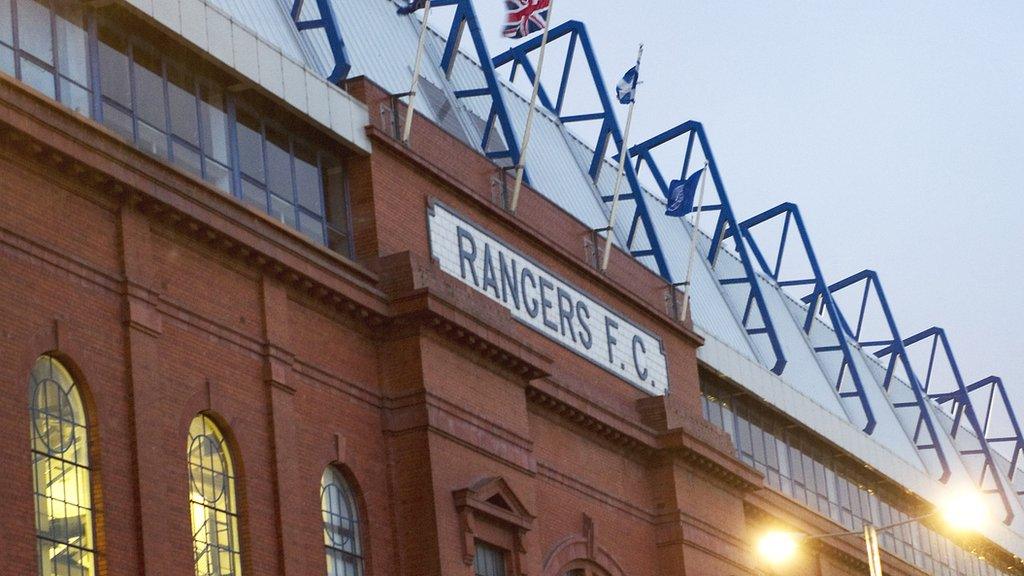
- Published23 August 2014

- Published6 August 2014
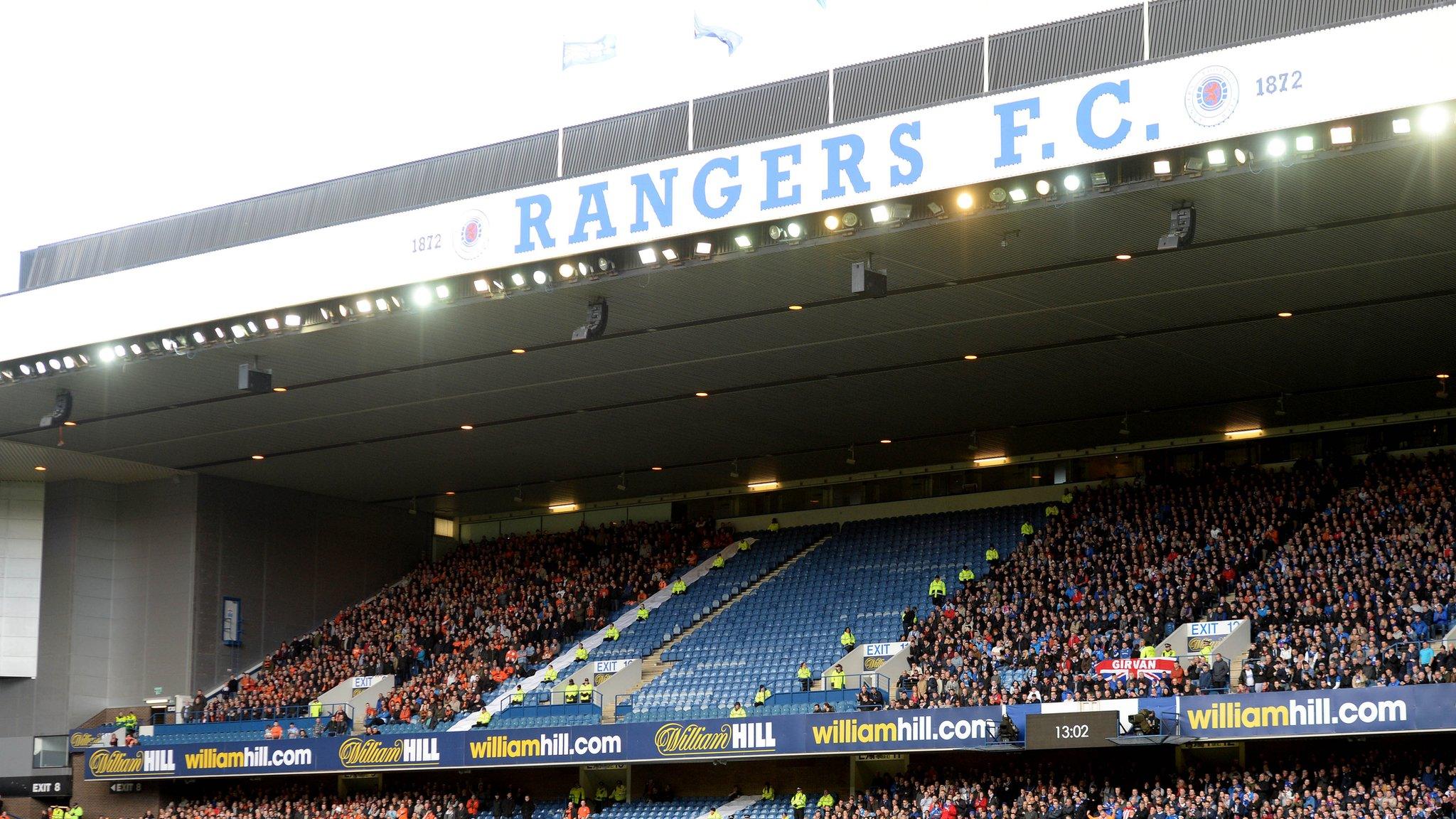
- Published13 June 2014
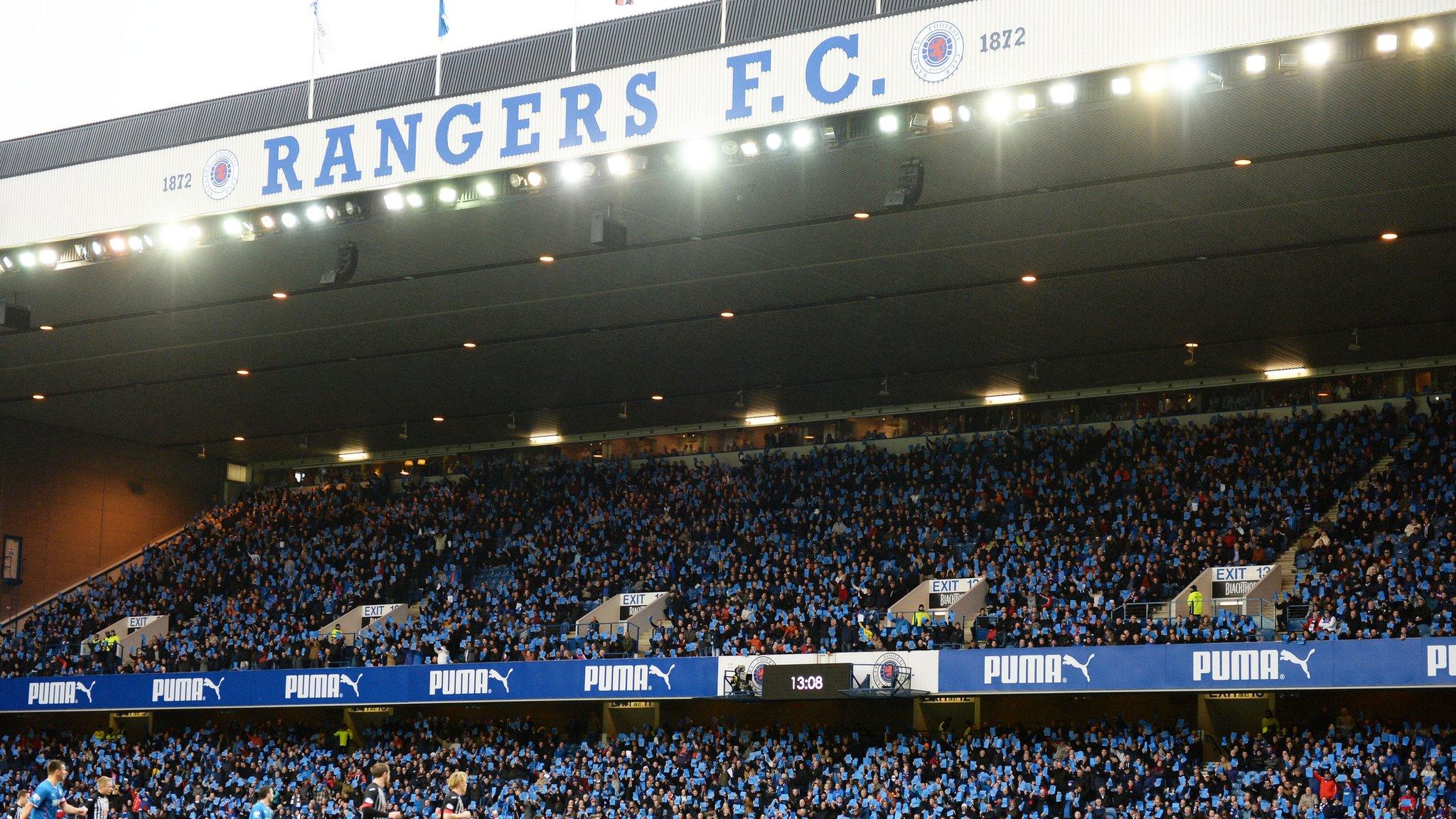
- Published26 April 2014
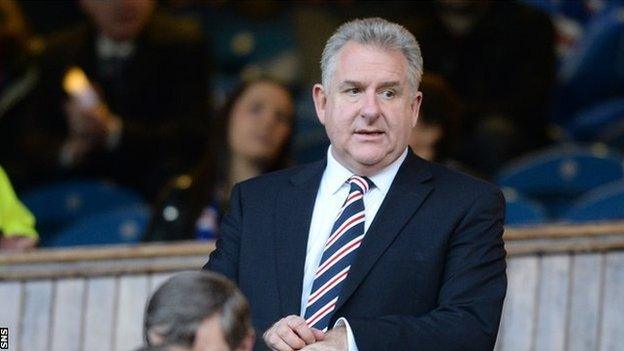
- Published25 April 2014
